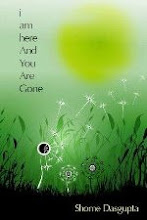Monday, May 31, 2010
Deborah Poe, On Reading
"Not long ago, I dreamt I was looking at a highly intricate book that writer Selah Saterstrom had made. But every page was more like a drawer, a compartment or a box. I considered how long she must have saved all the objects that were within every 'page.' In every 'page' were at least 20 objects—colorful fish beads, miniature tarot or decorated cards, stones. Every 'page,' with all enclosed objects, contributed to a story. I mean the objects were acting as 'text(s),' and those texts were a means of storytelling. It probably goes without saying after relaying this dream, but I think reading is a magical thing. I often read a book, either conceptually or formally, tied to what I will write the following day and let it seep into the twilight hours of writing when I wake up. I believe reading what you love comes to inhabit the pieces you write in mysterious and beautiful ways. As a teacher, I believe that a student who devours books is more likely to enlarge his or her range of influence in the world. A student with an understanding of prose and poetry can read the world in terms of metaphor, point of view, and association, expanding and deepening his or her perceptions—of self and other. Reading helps us negotiate human experience which can be terrible, overwhelming, confusing, lonely. A recent British study indicated women in impoverished areas around the world were less depressed than those who were disconnected from the Internet. Reading helps us connect with human beings. Reading allows us to see, and to be seen, within a larger framework of complexities. This framework is necessary for 'grasping' a richer understanding of social, political and cultural questions—questions dominant narratives don’t necessarily ask or answer. I believe reading and language are the connective tissue that allow us to resist barriers of thought and experience. Rikki Ducornet, in her essay The Deep Zoo, writes: 'In the tradition of Islam, the first word that was revealed to Mohammed was Igrá (Read!) The world is a translation of the divine, and its manifestation. To write a text is to propose a reading of the world and to reveal its potencies. Writing is reading and reading a way back to the initial impulse. Both are acts of revelation (para.1) .'"
{Deborah Marie Poe is fiction editor of Drunken Boat, guest curator/editor for Trickhouse in 2010/2011 and assistant professor of English at Pace University, Westchester. Deborah is the author of the poetry collections Elements (Stockport Flats Press 2010) and Our Parenthetical Ontology (CustomWords 2008). Her prose and poetry have recently appeared in Give a Fig (Les Figues Press’ blog), Colorado Review, Sidebrow and Denver Quarterly. For more information, please visit her website here.}
Subscribe to:
Post Comments (Atom)














No comments:
Post a Comment